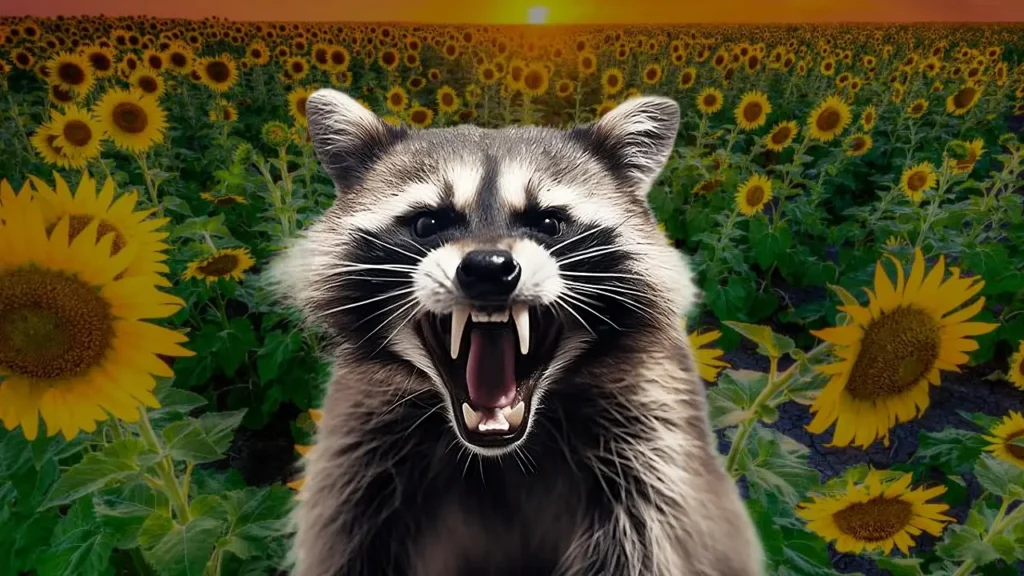Navigating the rules and regulations surrounding raccoon control in Kansas is essential for residents dealing with these wily creatures.
While raccoons are often considered a nuisance due to their scavenging tendencies, the state of Kansas has established specific laws and guidelines governing their management.
In this exploration, we will delve into the question of whether it is permissible to kill raccoons in Kansas and shed light on the available laws that dictate how these animals should be handled within the state.
Understanding these regulations is crucial for both ensuring public safety and safeguarding the welfare of these wildlife species.
Is It Possible to Kill Raccoons in Kansas

In Kansas, it is permissible to manage raccoon populations, but specific regulations must be observed. Raccoons are categorized as furbearing animals within the state, and they attract significant attention from both houndsmen and trappers.
- According to KSA 32-1002, individuals can address issues related to problem raccoons without requiring a special permit.
- It is important to note that during the running season, furbearers, including raccoons, cannot be hunted or trapped. Additionally, a furharvester license is mandatory to engage in activities related to furbearers.
- The Kansas Department of Wildlife and Parks (KDWPT) stipulates that trapping raccoons is only allowed if you possess a fur-harvester license.
- In many states, including Kansas, it is a legal requirement to euthanize raccoons that are removed from properties for any reason.
- Furthermore, it’s worth noting that Kansas may consider expanding the hunting and trapping seasons for raccoons, as well as other animals like badgers, in the future.
For additional information you can refer to our guide on ‘How to get rid of Raccoons.’
Best Practices for Disposing of a Dead Raccoon in Kansas
For residents of Kansas, adhering to proper procedures when disposing of a deceased raccoon is essential. Dead animals represent a noticeable but relatively small portion of the solid waste generated within the state.
- The most recommended method for handling significant quantities of deceased animals is rendering.
- As outlined by Kansas Statutes, individuals responsible for disposing of deceased animals are obligated to choose from the following options: burial, incineration, or delivery to a licensed rendering plant.
- In the state of Kansas, it is entirely legal to dispose of deceased animals through burial, incineration, or by delivering the carcasses to a licensed rendering plant.
- Should you require assistance with the removal of deceased animals, consider reaching out to a professional wildlife removal service such as Critter Control of Kansas City Metro.
Risks of Killing Raccoons in Kansas
Understanding the Risks Associated with Raccoon Elimination in Kansas:
- Raccoons are a prevalent wildlife species throughout Kansas, often considered nuisances due to their habits and behaviors.
- These animals can carry diseases that are transmissible to humans, such as roundworms.
- It’s crucial to note that roundworm eggs, which can be found in raccoon feces, can remain infectious in soil for an extended period, sometimes years.
- Eliminating raccoons without proper knowledge and precautions can heighten the risk of exposure to these infectious agents, especially if the raccoon is carrying them.
- Raccoons, when feeling threatened, may resort to aggressive behavior, potentially posing a danger to both dogs and humans.
- Undertaking raccoon removal can be hazardous without adequate familiarity with the correct techniques and equipment.
- If you decide to trap or remove raccoons, it is essential to do so only if you possess a thorough understanding of the associated risks and take appropriate precautions.
Alternatives to Killing Raccoons in Kansas
In Kansas, there are several humane alternatives to consider when dealing with raccoon-related issues. Utilizing cage-type live traps is a highly effective method, especially in urban settings, allowing for the safe capture of problem raccoons.
Once trapped, raccoons can be released in nearby wooded areas, offering a humane solution to the problem. Alternatively, individuals can opt to contact licensed nuisance wildlife control operators (NWCOs) who specialize in the removal of raccoons.
In cases where nuisance birds are also a concern, strategies like netting and trapping can be employed. To stay within the bounds of local regulations, it’s advisable to consult your state’s local wildlife management organization to determine the legal and ethical guidelines for trapping, releasing, or dealing with raccoons.
Moreover, taking proactive steps to prevent raccoons from becoming a problem in the first place, such as securing garbage cans and removing potential food sources from yards, can significantly mitigate issues associated with these animals.

